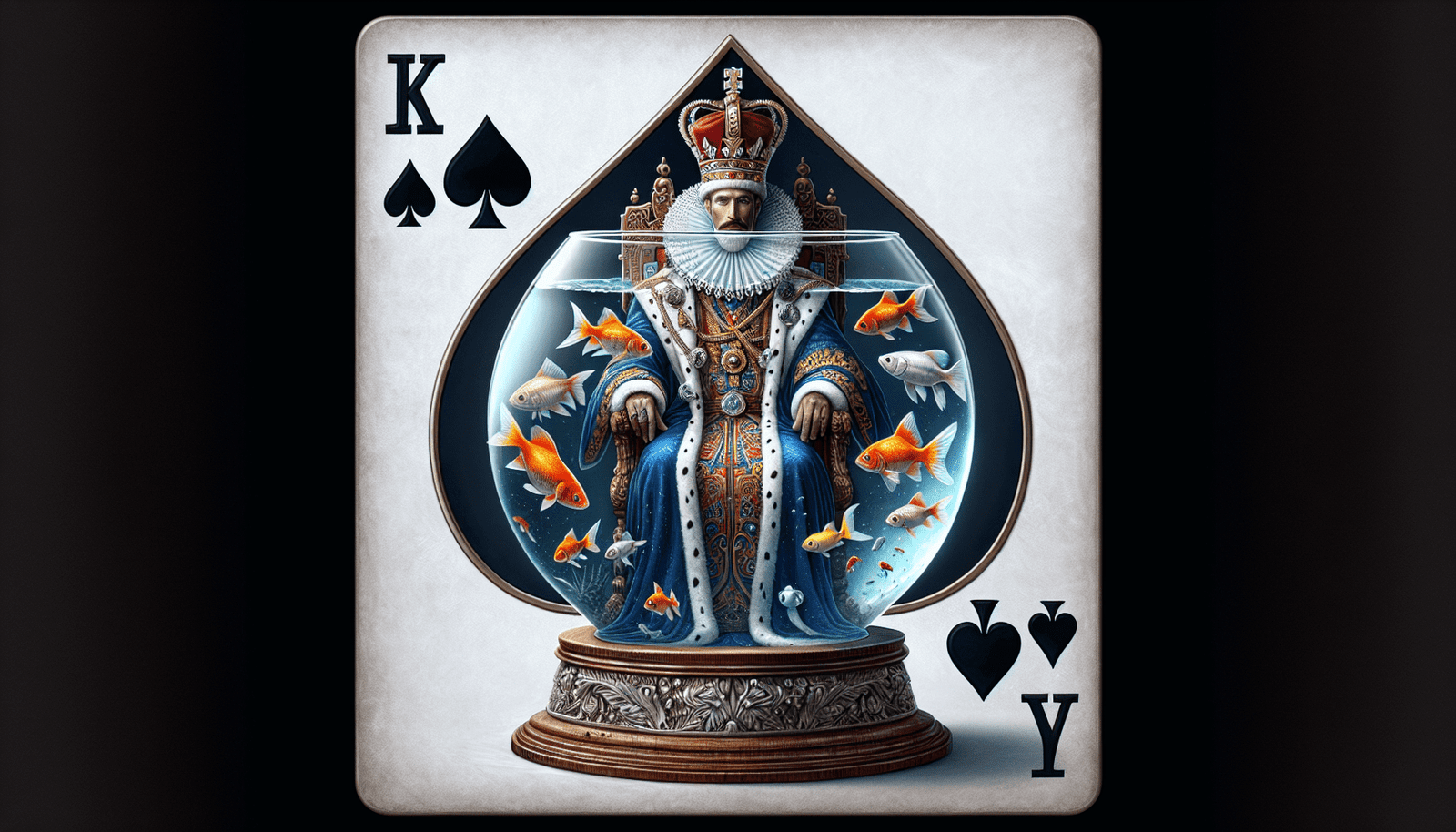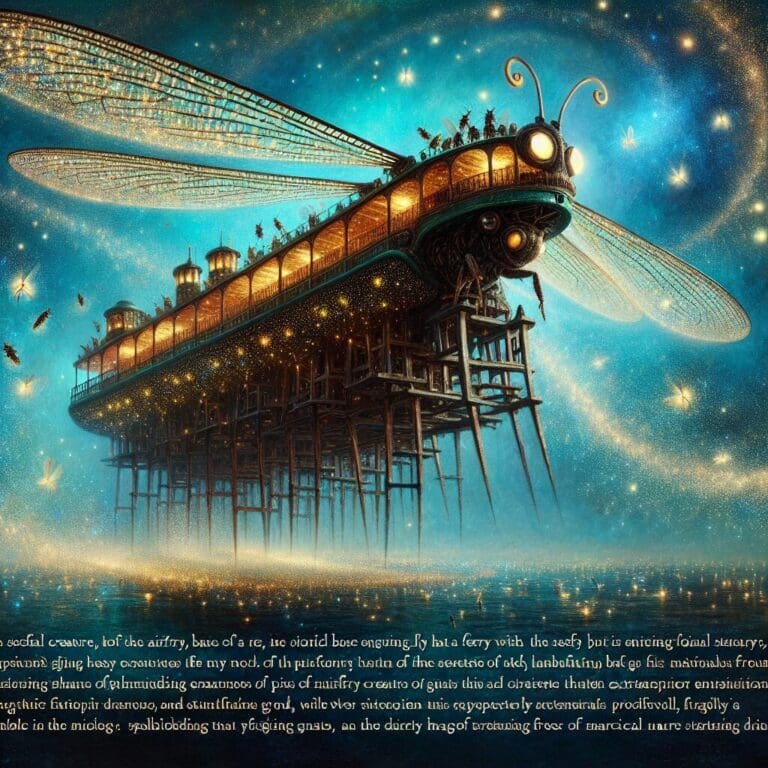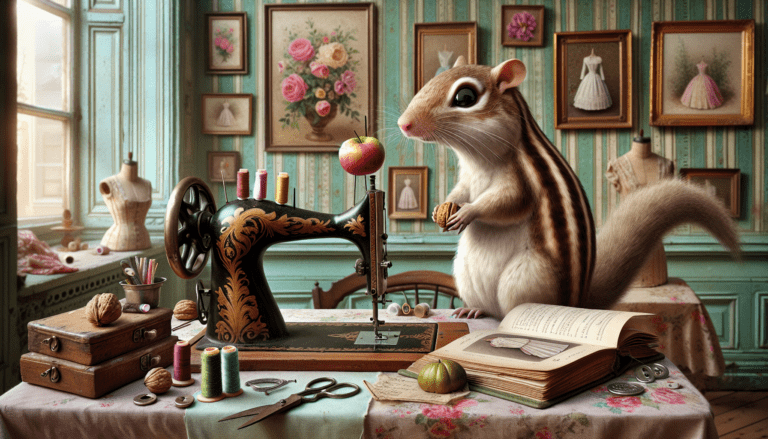In the heart of a deck, imprinted onto the Ace of Spades, lived a surreal entity. An ethereal Duke, embodied in royal finery, his countenance radiating the profound grace of aristocratic lineage. Yet no ordinary Duke was he, for his form seamlessly flowed into the contours of a crystal-clear fishbowl. A living exhibit of luminous fish, their vibrant hues pirouetting in the clear water, his form was ornate, embellished with silver spade motifs, a stunning amalgamation of aristocracy and aquatic life.
Upon a regal throne of aged mahogany he reigned, rich with opulent spade emblems. The throne’s grandeur was deepened by the Duke’s strange aqua-bodice and the tranquil life formulating within him. Stationed amid the pristine white canvas of a playing card, he emanated a serene, yet potent aura, untainted by dread apparitions or illicit substances.
Instead, the card radiated his oceanic essence, it’s existence seemingly carved from a ship’s deck itself, whispering tales of the Dukes aquatic realm. Penned by an artists hand, the image was a testimony of surreal grandeur, illustrating a seafaring Duke, his rule extending beyond terrestrial domains, into the silent blues beneath the turbulent waves.
Interesting Facts:
1. Duke: In the UK, a non-royal man married to a female monarch holds the title of Duke, not King.
2. Throne: Some of the worlds oldest recorded thrones were found in Egypt, dating back to 3100 BC.
3. Fishbowl: The first recorded use of glass fishbowls began in China during the Tang Dynasty (618–907).
4. Royal: The term royal actually stems from the Latin regalis, which means kingly or of a king.
5. Deck of a ship: The saying on the cards originates from ship decks, where the captains orders were displayed.
Haiku:
Against blue glass seas
Duke rules, deck his throne so grand
in a royal hand.




